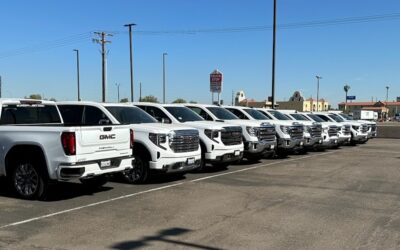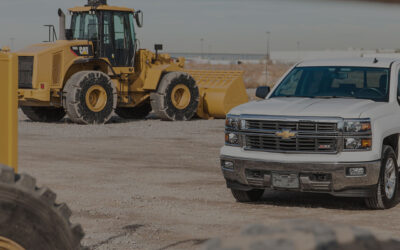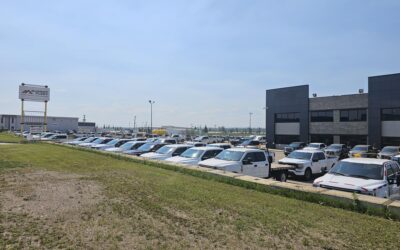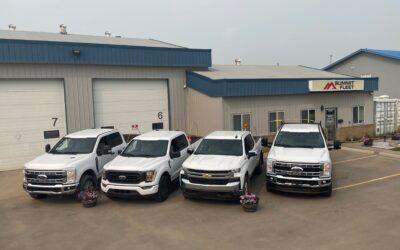How Government Fleet Managers Can Win by Renting
Many times, fleet rentals are only associated with private sectors. Let’s start by looking at the difference between private and public fleet management. Private sectors are organizations that are not owned by the government while public sectors are owned and run by the government. Public sectors often shy away from using fleet rental companies as an option since many government fleets adhere to the “run it to the ground” motto. Buying a fleet can get very pricey, especially at the large scales required by most government fleets.
Government fleet managers are faced with the pressing responsibility of funding the acquisition of new vehicles. As much money is set aside in government spending for fleets, it never seems to be enough. Fleet managers must try to obtain the necessary number of vehicles, with top-of-the-line features, at a reasonable price point. By renting, government entities can solve these issues.
To Rent or Buy?
Depending on the size and usage of a government fleet, the decision to rent or buy can differ. There are advantages and disadvantages to both options. When choosing to buy a fleet, one of the advantages is the increase in valuable assets. Another advantage to owning a fleet versus renting it is that the owner has complete control over every decision involving the fleet. When buying a fleet, there is also the possibility for a gain on investment through the resale of the vehicles. The downside to this is the amount of work that is associated with the resale process.
When renting a fleet of vehicles, there are more immediate advantages to consider. Renting vehicles for a fleet makes cash flow more readily available. Compared to buying a fleet, renting vehicles doesn’t require as much funding. This leaves public and private sectors who rent vehicles with more funds available to put towards other paramount investments. There is also a reduced financial risk linked to renting versus buying a fleet. The usage of rental fleets makes it easier for public sectors to track their fleet usage. Since renting can be done on a month-to-month basis with companies like Summit Fleet, fleet managers don’t have to worry about part of their fleet not being utilized.
Just as there are advantages to both renting and buying a government fleet, there are also some disadvantages. Higher maintenance costs can often plague a fleet that is bought since the vehicles are generally used for a long period of time. The lifespan of the typical vehicle is 9-12 years. Any repairs or maintenance costs are the responsibility of the owner. Typically, older vehicles not only require more maintenance but also portray a poor image. With rental companies, vehicles in the fleet are always being replaced by newer models with more features. This creates a better image for a fleet and managers can be assured the vehicles in their fleet are top-of-the-line. When renting a fleet, the excess wear and tear on the vehicle needs to be monitored. Rental vehicles can be used for any purpose of the job, but the vehicle cannot be “ran to the ground” as can a fleet that is bought.
Government Fleet Spending
Spending on government fleets is often only allocated for the purchasing and maintenance of fleets, not normally to rent them. Of the 640,304 vehicles used by the federal government, only 4,317 are commercially leased. In the state of Arizona, the government proposed to raise taxes to obtain new vehicles throughout the state. Over 80% of the fire trucks in the fleet were being used past their useful life and in need of replacement parts, many of which are not made anymore.
The Tucson Police Department also noted that over 60% of their vehicles were being used past their recommended service life and many needed to be replaced. To acquire new vehicles for the state, a sales tax raise was put into effect to raise the capital necessary to fund the fleet replacement. The sales tax increase is expected to raise more than 250 million dollars, with 75 million going to each the fire and police department. If the Tucson government were to rent some of the current vehicles in their fleet, they would not have to worry about obtaining the funds necessary to purchase new trucks. From renting, the government would have more cash flow available and be able to purchase those necessary fire trucks and police vehicles.
Why Government Entities Should Consider Renting Their Fleet
Renting can be a great alternative to buying a fleet. Government entities should consider renting their fleet for many different reasons. The first reason is that government fleets are generally not utilized to their full potential, which is a waste of tax payer money. If government entities would add rental vehicles to their fleet, they would be able to better stock their fleets. From month-to-month, the fleet would be able to accommodate smaller or larger demands. Not all vehicles in the fleet must be rented, but by adding rental vehicles, fleet managers are better able to equip their fleet during seasonal jobs and times of increased fleet usage.
The image that is associated with vehicles from Summit Fleet is unmatched, and fleet managers should never worry again about presenting a poor image. Another advantage for government entities to rent their vehicles is the flexibility and reliability that is associated with rental companies like Summit Fleet. The flexibility of month-to-month vehicle rentals is very convenient, especially for short term jobs. The reliability of Summit Fleet would ensure that whenever a vehicle is needed to add to the fleet, the vehicle would be available to rent.
Conclusion
In conclusion, listen up government fleet managers! Renting vehicles for a fleet is not limited to just private sectors. The State of Michigan has rented vehicles in its fleet since 1995. It is one of the only states to rent most of its vehicles instead of buying them. Why is it that other government entities haven’t implemented rental vehicles as an option for equipping a fleet? The state of New Jersey has an estimated total of 14,700 vehicles in its fleet (not including police, law, and public safety vehicles) and the state is trying to reduce their fleet size by 20% to curb unnecessary fleet usage. If the state of New Jersey would try renting part of their fleet from season to season, they may be able to cut their costs while eliminating unnecessary fleet usage.
As government vehicles are retired due to completed useful service life, these public sectors should try out rental vehicles for their fleet. Until government entities try renting, these fleet managers will keep running into the same issues repeatedly. So stop worrying about funding issues, poor organization image, and unnecessary fleet usage – consider renting your fleet.
Sources:
https://summitfleet.com/renting-fleets-vs-buying-fleets/
https://www.government-fleet.com/channel/operations/news/story/2014/11/bill-introduced-to-cut-nj-state-fleet-by-20.aspx
https://www.glesbymarks.com/seven-key-advantages-of-fleet-leasing-vs-ownership/
https://www.fleetanswers.com/sites/default/files/Dow%20Kokam%20Survey%20Report_0.pdf
https://www.government-fleet.com/channel/law-enforcement/news/story/2017/05/tucson-voters-approve-sales-tax-for-fleet-upgrades.aspx






